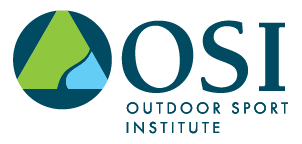Planning Ahead to Promote Flow
Erin Fay | OSI Coach
This month we have been talking about the concept of “flow” and how it is the desired state to be in while learning or working on a skill. We have shared articles on working with both students in a fearful and anxious place and students that are bored and under engaged. The reality of coaching sport is that it is a particularly rare occurrence for every one of the participants in our programming to show up with the same set of skills and experience.
With all that has been said this month the question still remains, how can we facilitate experiences that allow all of our participants to reach that “flow state” regardless of where their skill level is? In my experience preparation is the key element to successful sessions and programming. The more we can be prepared for our sessions with clear objectives, activities, and progressions, the better we can facilitate experiences for students that help them reach flow.
Session Preparation
As coaches we hope to facilitate experiences that foster flow for our participants and athletes however, it is important to also note that we do our best as coaches if we create experiences that put us in flow as well. Session preparation allows us as coaches to stay away from the overwhelmed and anxious feeling that being under prepared induces and also keeps us from being stagnant and repetitive by allowing time to brainstorm fun drills and activities that aid to our sessions objective.
In my experience session preparation has allowed me to:
Be organized, prepared and fully present when the group arrives.
To have meaningful and direct objectives and goals for my programming and sessions.
Experiment with new ways of delivering content and lessons.
Keep participants moving through pre-planned activities and drills.
Provide additional challenges for highly skilled participants beyond where our session might be focused and helpful cues and drills for participants requiring extra support.
For more information on how to plan ahead and conduct successful sessions check out the 7 Components of a Successful Session on our Team OSI - Community Coaches Network page.
Fundamentals
I think of fundamentals as the great equalizer in skill development sessions. Fundamental skills are the building blocks that allow athletes to progress on to the more complex skills down the line. My experience has been that by having athletes work on the fundamentals in our sessions allows all participants to work together on the same skill whether they are brushing up or learning it for the very first time. The more skilled athletes will identify bad habits or areas where they have become lazy or complacent while the newbies can work on mastering the new skill through the drills and activities we provide.
A great way to incorporate fundamental practice in a stimulating way is through drills, games, and activities. In mountain biking programming I often start and end the day with an obstacle course that emphasizes the fundamental skill the group will be working on for the day. I will usually allot 10 – 15 minutes at the start and finish of a session for participants to challenge themselves through the course and see how the fundamentals are helping them complete the course. This is also a great way to gauge where participants are at with skills when we are working with a new group, and offer any cues (adding difficulty and/or helpful tips and tricks) to individual students as we observe them working through the obstacle course. I also often involve the participants in creating and designing these courses and games because they get really engaged.
Utilize Your Resources
In my experience utilizing help from co-leaders and volunteers can be beneficial in helping participants find their flow for the following reasons:
Participants are able to experience different coaching styles and what they may not understand from me, they may understand from someone else.
It is easier to divide into smaller groups based on skill levels or specific areas of focus.
It can allow time for more one-on-one feedback between coach and participant.
One of my most successful experiences coaching mountain biking was with a community on the MidCoast where I was assisted by four community volunteers. We had a large group of students that ranged in age and experience levels. We were able to divide the group up by skill level and each volunteer had a skill progression and activities for their group to work on for 20 minutes. By the time the participants did a full rotation of each station everyone had received the right amount of coaching needed to improve from where they started.
To Wrap It Up
It is important to note that, despite our best efforts and planning, our participants often won’t be in a “flow state”. This is because of the many things that happen in their lives outside of time with us. It is a goal to strive for, however, while planning these experiences. While it may be overwhelming to think about creating programming to encourage flow for all of your participants, the simple task of preparing ahead of time, utilizing your resources, and bringing focus to fundamentals can go a long way towards creating an excellent experience for you and those you work with.

